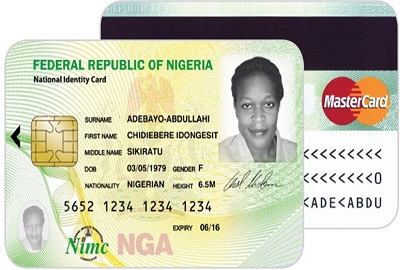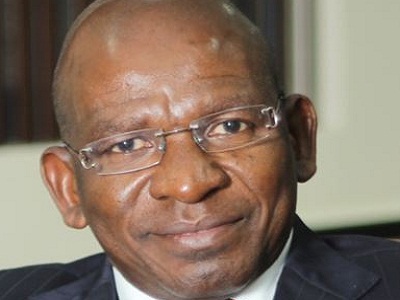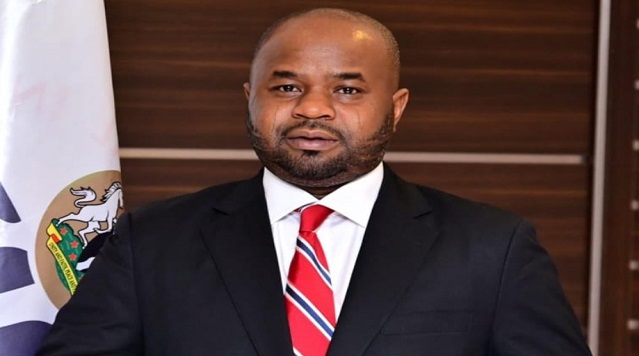News
Local Content: FG Pushes for Local Production of SIM Cards, Others

The federal government is worried that very little of the $18 billion Foreign Direct Investment (FDI) in the telecom sector over the years is retained in the country and has begun moves for local content policy, guidelines and legislation.
The government has also set an implementation date of January 2013, by which time; it expects to commence local production of subscriber identity module, base station transreceiver station (BTS), debit, credit and other payment cards.
Already, the Ministry of Communications Technology and key players in the industry are in discussions with offshore companies that are interested in establishing local companies to manufacture devices. It is also discussing with the Ministries of Finance and Trade and Investment on the most appropriate import and tax regime as an incentive for local manufacture.
Mrs. Omobola Johnson, Minister of Communications Technology, said, “The larger proportion of these cards are imported and sometimes personalised outside this country. There are a number of local companies that have the capacity to not only produce cards but also personalise them. Direct interventions must be made to ensure that a significant share of this market is captured by firms operating in Nigeria with of course the necessary high security assurances in place.”
She said that there was very high possibility that with the roll out of the cashless economy spearheaded by the Central Bank of Nigeria and the banking industry, the national and state identity management schemes and other card based services and the growing telecoms industry come 2015 or thereabouts, Nigeria could have close to 500 million chip cards in circulation.
The ICT industry contributed 5.6 per cent to gross domestic product (GDP) in 2011.
The industry has grown at an average of 30 per cent a year for the last two years making it one of the fastest growing sectors in the Nigerian economy.
Most of this growth comes from telecoms which have recorded over 90 million subscribers from about 400,000 in 10 years.
According to her, “The local content agenda that we are developing in the MCT and will soon operationalise is not so much a protectionist agenda but one that places priority on the development of our local industries by levelling the playing field or better still making it more advantageous for companies in Nigeria to do business with other companies in Nigeria.”
She noted that there were some unfortunate anomalies in the ICT industry. “It is cheaper to import a base station than to fabricate one in Nigeria. It is cheaper to import a chip card than to make and personalise them here. It is cheaper and many times more expedient to bring in a skilled resource from any part of the world than to invest in the training and capacity building of Nigerians.”
She stated that in a country with an addressable market of over 100 million in the ICT industry, only a miniscule percentage of devices that were used to access voice or data ICT infrastructure is made or assembled in Nigeria.
It is clear that liberalisation and private sector participation would not guarantee domestic value creation especially in industries where domestic value added was not significant in the first place,” the minister said.
She added that there was need for a deliberate focus, emphasis and approach to ensure that this happened as has been demonstrated by the local oil and gas industry. “In the recent past we have seen many examples of countries that are creating local jobs by stimulating local economies through increasing domestic productivity,” she added.
News
Trump Says He Made no Mistake Sharing Video Depicting Obamas as Apes

United States President Donald Trump has said he made no mistake for a video briefly shared on his official Truth Social account that depicted former President Barack Obama and former First Lady Michelle Obama as apes.

Former President Barack Obama
Speaking late Friday to reporters accompanying him aboard Air Force One, Trump insisted he made no mistake by sharing the video and does not need to apologise.
“I didn’t make a mistake,” he said.
Trump explained that he did not watch the entire clip before it was posted.
“I didn’t see the whole thing. I looked at the first part, and it was really about voter fraud in the machines, how crooked it is, how disgusting it is.
“Then I gave it to the people. Generally, they look at the whole thing. But I guess somebody didn’t,” he said.
When asked directly whether he condemned the video’s content, Trump replied, “Of course I do.”
The video, which was posted late Thursday, pushed a conspiracy theory about voting machines used during the 2020 election and included a racist depiction of the Obamas.
It remained on Trump’s Truth Social account for about 12 hours before being deleted on Friday morning, following widespread bipartisan calls for its removal.
The White House initially defended the post in an emailed statement to reporters on Friday morning by Karoline Leavitt, Press Secretary,.
She said, “This is from an internet meme video depicting President Trump as the King of the Jungle and Democrats as characters from The Lion King.”
Leavitt added, “Please stop the fake outrage and report on something today that actually matters to the American public.”
Hours after the statement was issued, the video was removed from Trump’s official Truth Social account.
News
Orya, Ex-NEXIM MD Jailed 490 Years for N2.4Bn Fraud

Robert Orya, former managing director, Nigerian Export-Import Bank, (NEXIM), has been sentenced to a cumulative 490 years’ imprisonment over a N2.4 billion fraud, following his conviction by a Federal Capital Territory (FCT) High Court in Abuja.

The conviction was secured by the Economic and Financial Crimes Commission (EFCC). Justice F. E. Messiri sentenced Orya to 10 years’ imprisonment on each of the 49 counts brought against him, with the sentences running cumulatively.
Orya, who headed NEXIM Bank between 2011 and 2016, was prosecuted by Samuel Ugwuegbulam, EFCC counsel.
The anti-graft agency accused him of fraudulently diverting funds belonging to the bank—charges the court held were proven beyond reasonable doubt.
Delivering judgment, Justice Messiri ruled that the prosecution successfully established its case, finding the former bank chief guilty on all 49 counts of fraud.
The conviction has been widely linked to the renewed momentum within the EFCC under Mr. Ola Olukoyede, its Chairman, whose leadership has seen a reinvigoration of the agency’s resolve to pursue high-profile corruption cases to their logical conclusion.
Since assuming office, Olukoyede has repeatedly vowed that no individual, regardless of status or past influence, would be shielded from accountability.
Under his stewardship, the EFCC has intensified the prosecution of complex financial crimes, particularly cases involving public institutions and large-scale diversion of funds.
Observers say the sentencing of a former chief executive of a government-owned bank underscores the EFCC’s determination to restore public confidence in the anti-corruption fight and sends a strong signal that financial misconduct will attract severe consequences.
The judgment is regarded as one of the most significant convictions secured against a former banking chief in recent years, reinforcing the agency’s resolve to clamp down on economic crimes within Nigeria’s financial sector.
During his tenure at NEXIM Bank, Orya was initially credited with efforts to reposition the institution to support non-oil exports and improve its financial standing after earlier setbacks.
However, his administration later became enmeshed in controversies, including allegations of loan disbursement irregularities and procedural abuses.
The case, which culminated in Thursday’s judgment, centred on findings that Orya diverted public funds estimated at N2.4 billion—offences that ultimately led to his conviction and lengthy prison sentence.
News
NRS Chairman Outlines Ways Nigeria can Move from Potential to Economic Prosperity

Zacch Adedeji, chairman of the Nigeria Revenue Service (NRS) has called for a paradigm shift in dependence on raw material exports to one that embrace ideas, innovation and the production of complex products as a pathway to sustainable economic growth and national prosperity.

Adedeji made the submission while delivering the maiden distinguished personality lecture of the Faculty of Administration, Obafemi Awolowo University (OAU), Ile-Ife, Osun State, on Thursday.
A statement by his Special Adviser on Media, Dare Adekanmbi, said Adedeji, in the lecture entitled, ‘From Potential to Prosperity: Export-led Economy’, stressed the need to rethink growth through the lens of complexity by not just producing more of the same stuff.
He lamented that Nigeria possesses a high-tech oil sector and low-productivity informal sector as well as lacking “the vibrant, labour-absorbing industrial base that serves as a bridge to higher complexity.”
The NRS boss stated that Nigeria witnessed stagnation in its exportation drive for three decades between 1998 to 2023, and only added six new products in its export basket list between 2008 and 2023.
“Because of our current position, the Harvard Atlas concluded that we are positioned to take advantage of very few opportunities to diversify using what we already know.”
Adedeji urged Nigeria to learn from the world by comparative study of success and failure like Vietnam, Bangladesh, Indonesia, South Africa and Brazil.
“We are not just looking at numbers in a vacuum; we are looking at the strategic choices made by nations like Vietnam, Indonesia, Bangladesh, Brazil, and South Africa over the same twenty-five-year period. While there are many ways to under perform, the path to success is remarkably consistent: it is defined by a clear strategy to build economic complexity.
“When we put these stories together, the divergence is clear. Vietnam used global trade to build a resilient, complex economy, while the others remained dependent on natural resources or a single low-tech niche.
“There are three big lessons here for us in Nigeria as we think about our roadmap. First, avoiding the resource curse is necessary, but it is not enough. You need a proactive strategy to build productive capabilities.
“Vietnam’s success came from integrating itself into Global Value Chains (GVCs). They positioned themselves as the assembly hub for the world’s electronics, importing high-tech parts and exporting finished products.
“This allowed them to “borrow” technology and management skills from abroad to build their own know-how.
“Nigeria, on the other hand, remains a supplier of raw materials to these chains, not an active participant within them. We must realise that productive capabilities are not permanent. The examples of South Africa and Brazil show us that you can actually lose your industrial edge if you are not careful. Over-reliance on the easy path of resource extraction creates economic and political incentives that crowd out the difficult, long-term work of building an industrial base.”
He added that for Nigeria, which is at an even earlier stage of development and even less diversified than these nations, the warning is stark.
“Relying solely on our natural endowments isn’t just a path to stagnation; it’s a path to regression. The global economy increasingly rewards knowledge and complexity, not just what you can dig out of the ground. If we want to move from potential to prosperity, we must stop being just a source of raw materials and start being a source of ideas, innovation, and complex products.
He added that President Bola Tinubu has already begun the difficult work of rebuilding the economy to ensure collective knowledge to innovate, produce and build a resilient economy.
“The journey from potential to prosperity is not a short one, but with the right map and the right resolve, it is a journey we can finally complete,’ he added.

 E-Financial3 days ago
E-Financial3 days agoMajority of Nigerians do not Trust Govt with Tax Revenue – SBM

 Telecom2 days ago
Telecom2 days agoMTN Guns for $2.76bn IHS Towers Buyout in African Telecom Power Grab

 E-Financial2 days ago
E-Financial2 days agoIncentives alone won’t win over Africa’s next billion fintech users — Kuda MFB MD

 E-Business2 days ago
E-Business2 days agoFirm Reviews the Evolution of Phishing Threats in 2025

 Telecom2 days ago
Telecom2 days agoGoogle Calls on Africa’s AI Trailblazers for 10th Startup Accelerator Cohort

 General News2 days ago
General News2 days agoEdTech Platform Unveils over 5,000 Self-Paced Courses for Skills, Knowledge, and Literacy

 General News1 day ago
General News1 day agoGlobacom Donates ₦1Bn to Lagos State Security Trust Fund

 Telecom2 days ago
Telecom2 days agoOptasia Drives Responsible AI Conversation at Nigeria’s Privacy Week 2026


























